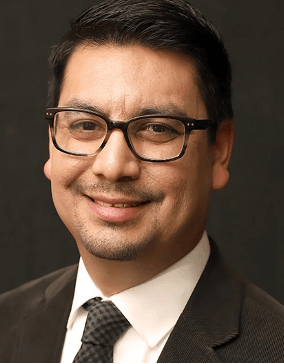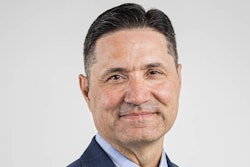Research has well established the importance of academic advisors to students from underrepresented backgrounds, but less work has been done on advising that highlights the identities of the schools that educate them, the 859 minority serving institutions (MSIs) that enroll 35% of all undergrads in the U.S. Now, a new report from the Rutgers Center for MSIs has been released to fill that gap, painting a picture of advising at MSIs and offering recommendations for further development.
The report is based on questionnaires answered by 32 academic advising leaders from a diverse set of MSIs. Colleges from different regions and sectors were included as well as those with varying levels of enrollment and student backgrounds. One conclusion was overwhelmingly clear: these schools put exceptional effort into their advising.
 Dr. Gabriel O. Bermea, visiting scholar at the Rutgers Center for MSIs
Dr. Gabriel O. Bermea, visiting scholar at the Rutgers Center for MSIs
Dr. Marybeth Gasman, executive director of the Rutgers Center for MSIs and a co-author of the report, agreed.
“MSIs have unique ways of working with students,” she said in an email to Diverse. “They are used to working with low-income, first gen, and students of color in ways that make them experts.”
Because of this concern for their students, MSIs have done a good job centering their voices in conversations about advising. What gets less attention, according to the report, are the voices of advisors themselves.
“It’s important to recognize that you also need the advisor feedback,” said Bermea. “Advisor feedback can provide some of that additional insight into what could be our goals, what are we working towards, how do we elevate the work of academic advising on this campus. Those questions can be around budgets, professional development support, [and] assessment practices.”
Andrew Millin, a Ph. D candidate at Florida International University who has researched advising at MSIs, agreed.
“As administrators, you are not on the ground as much,” he said. “So, if you are making decisions regarding delivery of services, you need to speak to the people themselves who are delivering the services.”
The report also found that academic advisors at MSIs are more likely to help their advisees with career exploration but are generally less likely to offer career advising, in which they monitor progress towards career goals and provide career readiness strategies and practices. A deliberate integration of career and academic could be helpful, the report suggests.
Bermea is careful to note that academic advisors, who already have a lot of responsibility, should not get extra burdens. But he thinks that it’s helpful for institutions to think about how the advising conversation can elevate opportunities for internships or other experiences that may help a student achieve their dreams post-completion.
 Andrew Millin, Ph. D candidate at Florida International University
Andrew Millin, Ph. D candidate at Florida International University
“There are students who are getting overwhelmed because there are too many offices, too many different services, and too many different types of advisors,” he said. “A one-stop-shop is really saving the student time of having to go around and navigate all these different centers to try to get something done.”
Unsurprisingly, the report showed that MSIs value competency in anti-racism in their advisors. However, it found that this competency often isn’t emphasized in training: advisors from MSIs of all categories said that they rarely received anti-racism training, even though all of them rated anti-racism competency as at least essential. Trainings were more likely to focus on informational competency (foundational knowledge about the institution) and technological competency.
Bermea attributes this to the recency with which the conversation about race in America exploded.
“Anti-racism was really elevated with the pandemic, understandably, with what was going on nationally, and the field has responded,” he said. “Like all things, it takes time.”
But he was clear about the competency’s crucial importance.
“Anti-racism leads to a much more humanized academic advising experience. You have a more equity-minded practice approach, an opportunity to really think through your personal biases, develop cultural humility skills,” said Bermea. “You recognize that students are experts themselves in understanding the context in which they operate and how they have to balance that with their own educational journey.”
However, it was less certain whether MSIs, which are often underfunded, would be able to implement the report’s recommendations.
“It comes down to time and resources,” said Bermea. “It limits what can be done. Advising ratios can be large, and when that ratio is large, you have less time to meet with students, less opportunity to discuss things like career and post-completion success. Do we have the time and resources to meet with academic advisors to get their feedback? Do we have someone who can develop these types of trainings? Do we have the resources to bring somebody in?”
Gasman was hopeful, however.
“I think they could go to funders with a strategy around these recommendations, she said. “They really have an advantage as experts in this area.”
Jon Edelman can be reached at [email protected]





















